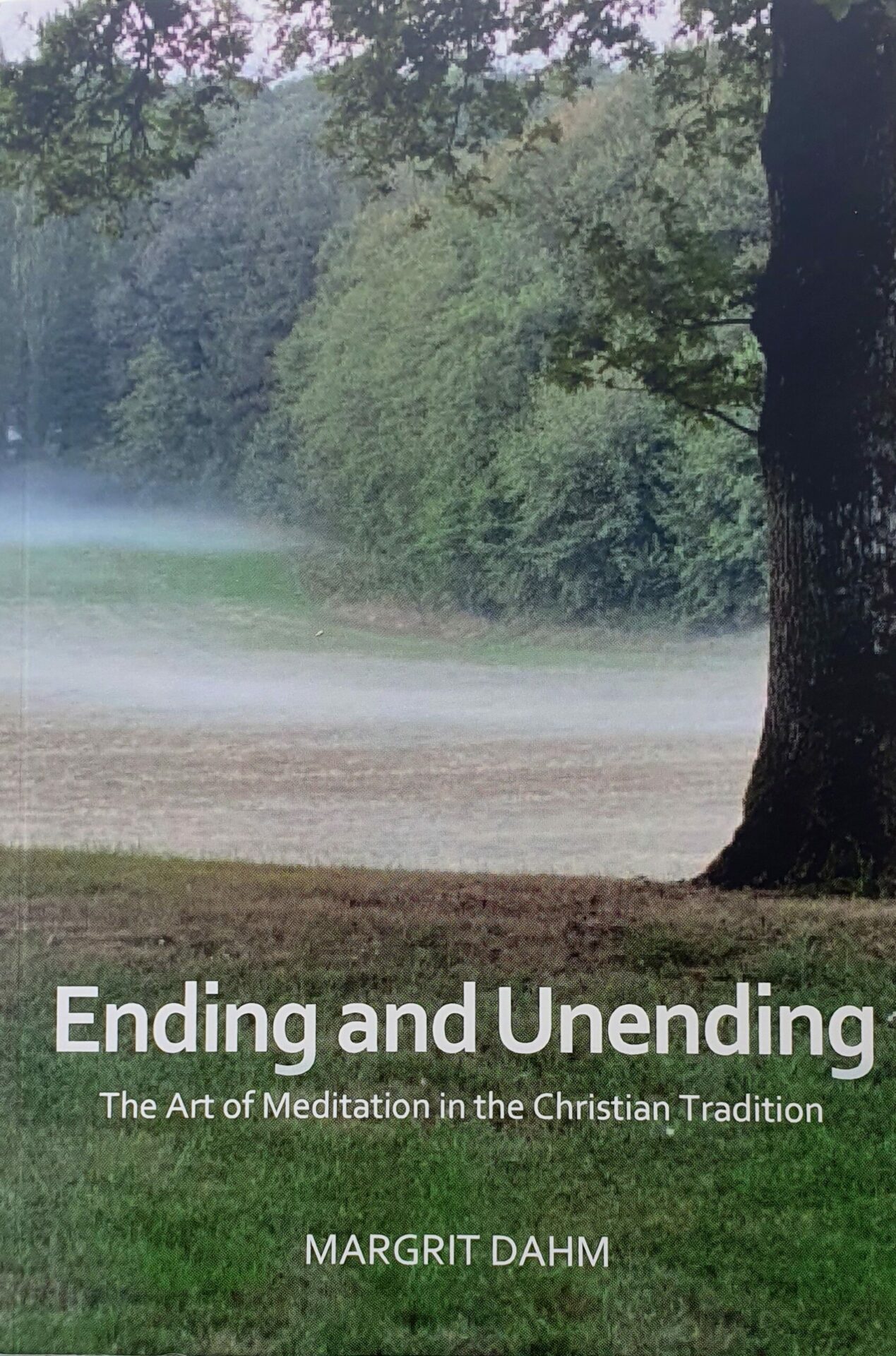In the contemplative tradition we don’t need words, and yet words are necessary. They are necessary because well-discerned words inform spiritual experience without replacing this experience. These words, words that are themselves shaped by spiritual experience, point us towards the best teacher: the human experience of coming into union with God.
And yet, when we use words, there is the temptation to use too many. There is always the risk that words will become the veil covering what they describe, drawing attention to themselves rather than to what the words are meant to serve: the Reality within and beyond them. In the case of Ending and Unending, by Margrit Dahm, this Reality is the Christian God of unending faith and love. If we are to be with this unending, then words must be few and must themselves point to their own demise, their own necessary ending. Margrit Dahm does this wonderfully.
The poems in Ending and Unending were written during the COVID crisis and lockdown. This is Margit’s fourth book of poetry and her second in English. Her first two books were in German, her first language. Margrit was born and raised in Germany, before spending her early adulthood in Hong Kong. After this, she moved to the United Kingdom, settling in London. Margrit is a long-term member of the WCCM.

Her poetry moves the reader from practice to the fruits of this practice, and back again, gently weaving a path through teaching, wonder, awareness, and attention. And all is grounded in a humane spirituality with grace at its heart.
As Laurence Freeman says in his recommendation of the book, Margit’s poems ‘clearly express her sensitivity to both the inner and outer worlds and to the dimension of the Spirit which unites them.’
Margit reminds us that Christianity is not Christian without grace. Without grace Christianity falls into performance and scrupulousness; we can become slaves to a deep-seated sense of never being good enough. This is the lie we believe, in ways subtle and not so subtle. It can pervade the human mind, our relationships, and the systems we live in. And yet in all this, God gives freely and fully, without condition. This is what grace is – a free and full gift of God given to all.
Margrit’s poem In The Light gives us insight into the nature of this grace. The poem relates an experience via analogy. In so doing, it grounds the experience in the body. Just as the sun ‘penetrates the outer layers of our skin’, so grace ‘touches the innermost part of our heart’. Here, in the heart, there is the experience of a gentleness beyond imagination, a presence warm and loving. Margit knows of this experience in the depth of her heart, and so can speak of it simply and wisely. The experience is not imagined, it is real. If we were to analyse it, it would soon disappear, and so those who truly know it use analogy.
What I especially appreciated in Ending and Unending is its gentle and humane approach. Any way that focuses on the centrality of grace will, in the end, ground itself in a gentle and compassionate humanity. This is important because, as meditators and as humans, we can fall into seeing meditation as something to get right, seeing our sessions as successful or unsuccessful. Margrit exposes this tendency in the poem Grace:
The longer we practice
the prayer of meditation,
the more we are humbled
by the realisation
that all our efforts
will always have to
be compensated by
the healing hands of love
The practice itself, as we give ourselves to it, undermines our ‘performance desire’. Grace transforms our minds via the experience of being humbled as we ‘fail’. Our idealized ideas of meditation and what it means to be a meditator, shift and change. A meditator does not put their humanity aside to meditate. We are humans meditating. In time we see that, as our humanity grows more and more into our loving selves, we need God for this growth to happen.
This theme of a human being meditating shapes the wonderfully compassionate poem Sadness. Here Margrit speaks of the ‘sincere regret’ felt when our minds are full of ‘restless thoughts’ during meditation. Like Margrit, I have looked on these times as lost opportunities. Restless and perhaps compulsive thoughts claim attention and so clutter the heart. However, Margrit assures us that not all is lost. This is a time to know the absence of God, if only via our own absence. And we may realise through this experience that nothing is wasted. Like a missing piece of a jig-saw puzzle, sometimes we come to know something of ‘God’s shape’ via God’s absence. This absent shape can become the heart’s longing.
Many of the poems in Ending and Unending are an invitation to trust in the graced work of the mantra as we meditate. Poems such as Obedience, To Trust, Happiness, and Learning to Be all ask us to trust in the ‘faithful repetition’ of the mantra, before then witnessing the fruits of this practice: a sharing in God’s very life, a coming to know God’s acceptance in a stable, silent centre where we ‘simply are’.
Awareness and attention are also themes. For example, in Mindfulness, Margrit gives us a wonderfully simple definition of what mindfulness is:
It is this kind of inner awareness where you see with your heart rather than with your eyes only,
And by doing so, meet with the love of God
Volumes have been written about mindfulness, and yet here we have its essence, a record of that which is lived without words.
And I could go on, using too many words that would cover the generous simplicity of Margrit Dahm’s work. I could speak about Inner and Outer, its record of graced awareness in the ordinary of a bus ride. I could complicate the wonder of Full Moon and With the Light Steps…. All this, of course, would draw attention away from that which Ending and Unending would have us realise: the grace of God’s life in all life, and just what this grace does. Humbly and faithfully saying the mantra helps this realisation along, grounding it in our own experience. The author has come to know this, and so has dedicated her book of 76 sensitive, single page poems to the WCCM. Thank you, Margrit.
Curious to read this book?
Ending and Unending: The Art of Meditation in the Christian Tradition is available via Medio Media.
Images sources: book cover by Medio Media (mediomedia.com)






1 thought on “Ending and Unending: The Art of Meditation in the Christian Tradition”
At the very heart of my contemplative practice is CONSENTING to the PRESENCE and ACTION of the TRINITY. Any sense of what I am doing gradually melts away. Trust in Tradition gradually arises. A sense of GRACE is presenting. The practice is the presentation